Governance and Civics Worksheets for Ages 3-5
6 filtered results
-
From - To
Explore our engaging "Governance and Civics Worksheets for Ages 3-5" designed to introduce young learners to the fundamentals of community and leadership. These printable worksheets encourage children to understand basic concepts of governance, helping them recognize their roles as citizens and the importance of cooperation. Through delightful activities like coloring, matching, and simple decision-making tasks, kids will develop essential social skills while learning about their surroundings. Perfect for preschool education, our resources aim to inspire curiosity about the world, fostering early civic awareness in a fun and interactive way. Engage your little ones today and lay the foundation for their understanding of civics!
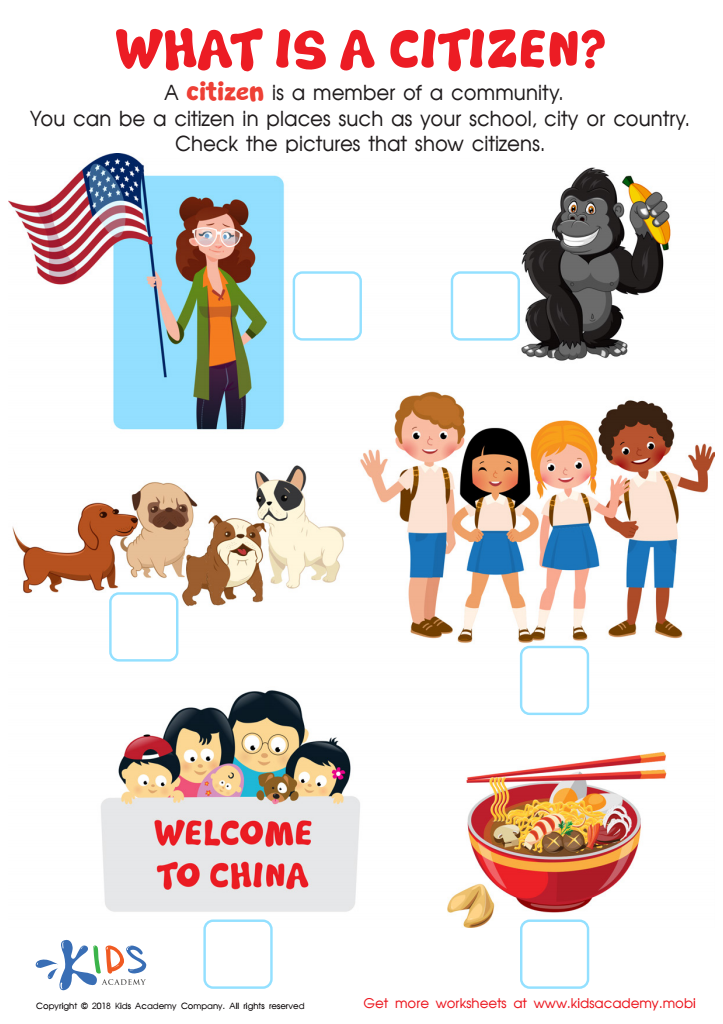

What is a Citizen? Worksheet
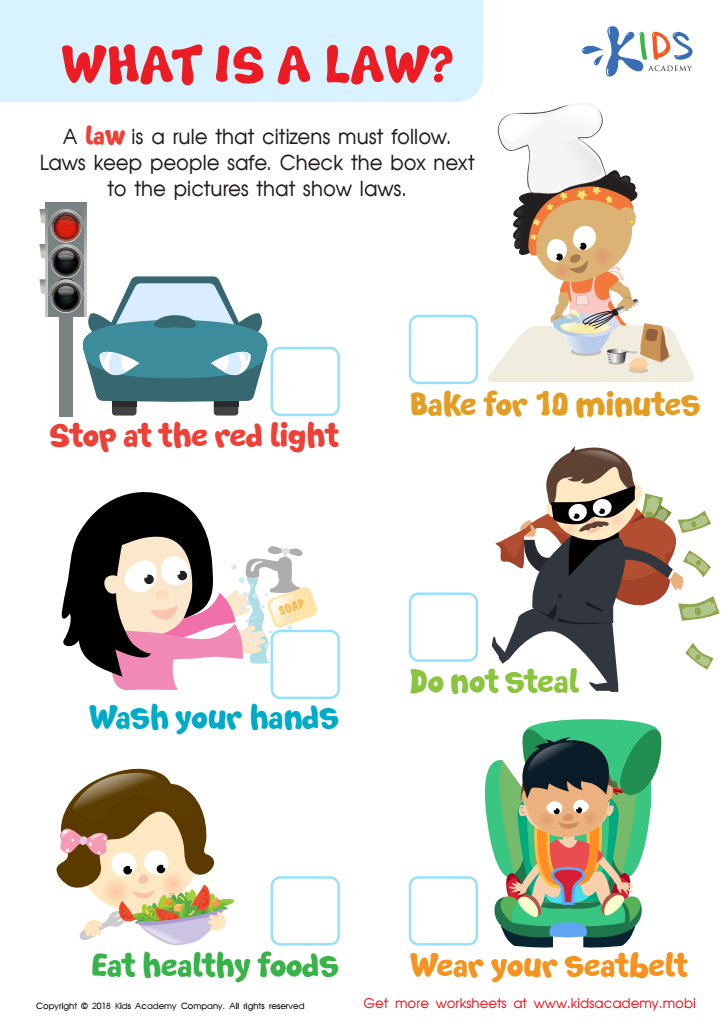

What is a Law? Worksheet
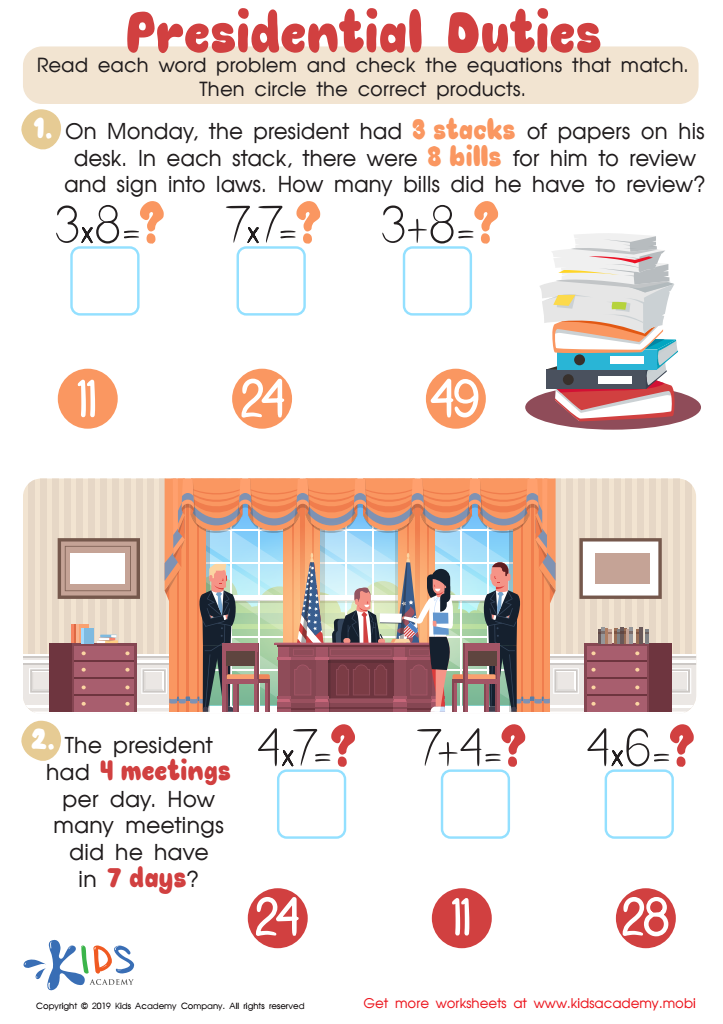

Presidential Duties Worksheet
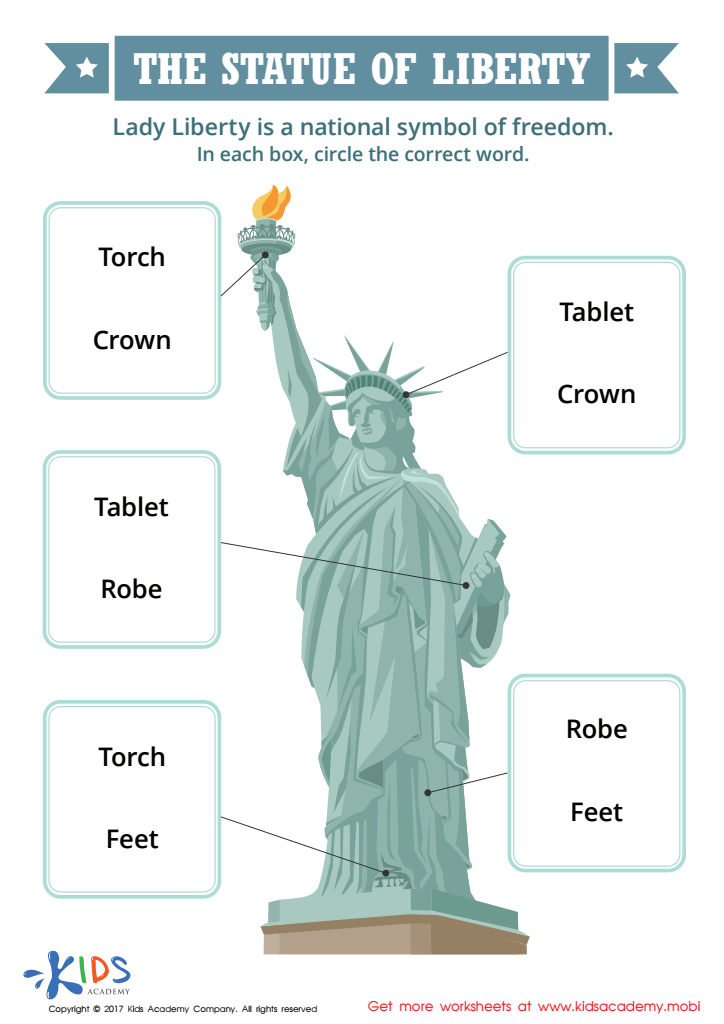

The Statue of Liberty Printable
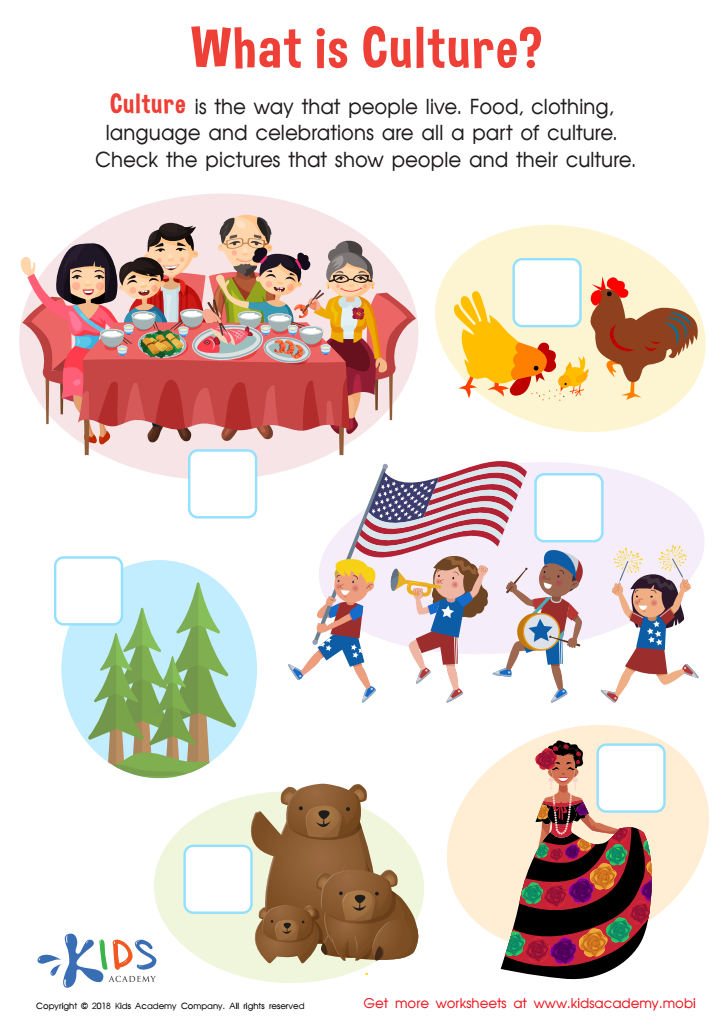

What Is Culture? Worksheet
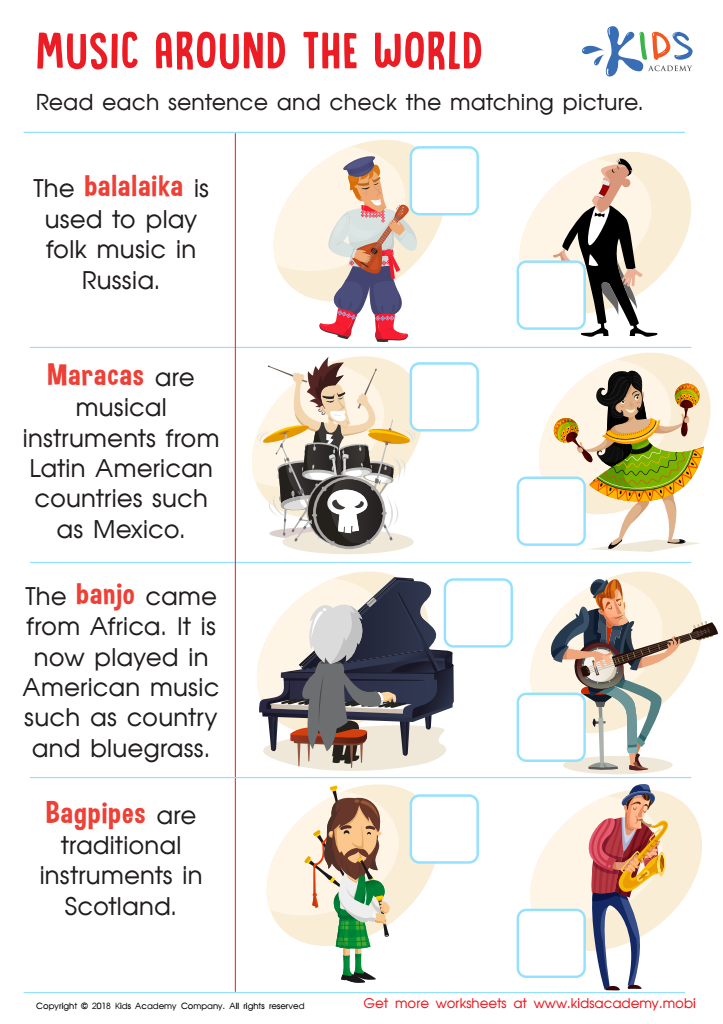

Music Around the World Worksheet
Teaching governance and civics to children ages 3-5 lays the foundation for their understanding of community, responsibility, and citizenship. At this impressionable age, children are eager to learn about their world, making it an ideal time to introduce basic concepts of governance, such as rules, teamwork, and respect for others. Understanding how decisions affect their environment fosters empathy and cooperation among peers, cultivating a sense of belonging.
Moreover, early civic education promotes critical thinking and problem-solving skills when children encounter social issues. Through play and structured activities, they can explore concepts like fairness, sharing, and resolving conflicts. Very young children begin to acquire essential social skills and awareness about individual roles within a group—whether at home, school, or in broader contexts.
When caregivers prioritize civics education, they empower young learners to recognize their voices and actions as valuable in their communities. This awareness not only builds confident individuals but also molds them into informed citizens who understand the importance of participation in a democratic society as they grow.
Ultimately, by caring about governance and civics in early childhood, parents and teachers lay the groundwork for lifelong engagement, encouraging children to become responsible, active participants in their communities as they mature.

 Assign to My Students
Assign to My Students















